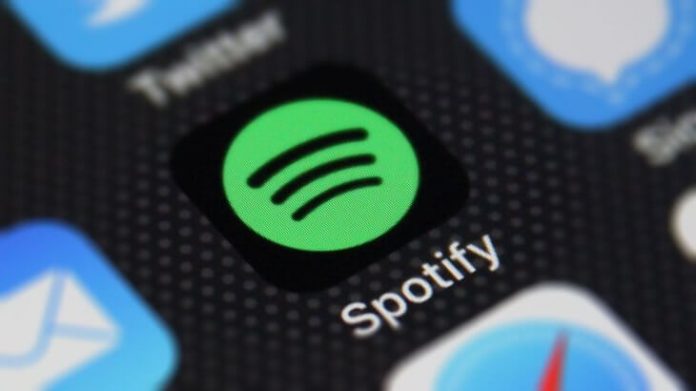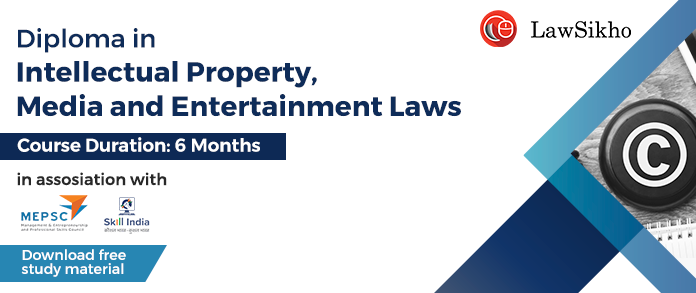This article is written by Vinit Bagdai, pursuing a Diploma in Intellectual Property, Media and Entertainment Laws from LawSikho.
Table of Contents
What is Spotify?
Spotify is a streaming music service which has a huge collection of over 8 million tracks, which lets the users easily select tracks which they wish to listen to. The journey of Spotify began in the year October 2008, and now it has almost 7 million users across diff Euro countries. There are two different versions of this service: a free version with advertisement in it, and a premium, pay-per-month, version which has no advertisement at all. The premium version includes some additional features like streaming the song at a higher quality, and it also helps to synchronize the playlists for offline usage. Both versions; free and premium allows limitless streaming, and largely users are on the free version. The music collection for both the versions is the same with the exception of some prereleases exclusively given to the premium users. However, due to licensing limitations, the tracks accessible to a user depends on the user’s home country. The average latency to begin playback of a track in Spotify is around 265 ms. The Spotify service is not web-based, but instead it uses an exclusive client and procedure in them.
Legal Provisions and Governing Regulations
- Section 12 of the Copyright Act explicitly excludes private copying of digital content.
- Section 16 provides that libraries have a right, in specific situations, to digitize works with a view to preserve such works.
- Section 23 eliminates the digital reproduction of works of fine art in connection with critical presentations.
- Section 52d excludes the unauthorized circumvention of any digital lock which prevents or restricts the making of copies of a work protected by copyright.
To know more about copyright please visit
Online content is not bound to specific statutory regulations in the Copyright Act. The act nevertheless applies when copyrighted works are made available online.
With the exception of the Swedish Patent and Registration Office, which is entrusted to monitor organizations subject to the 2016 Act on the Collective Management of Copyright, no government authorities are specifically charged with regulating and enforcing copyright law.
How does Spotify work?
From the business perspective, Spotify purchases licenses from particular music labels, artists, publishers, and other right holders for streaming their music on its platform. For paying the royalty to different artists, the platform uses multifaceted algorithms that will confirm the royalty per stream for every artist or music label. The platform uses the features like country (in which the particular song gets played), currency value of such country, contracts, artist value and many more such factors come into picture while calculating the royalty.
Spotify liability in terms of Copyright Infringement
Scrutiny has been done for Spotify in relation to their online copyright infringement issues in the music industry and they have been bombarded by all sorts of lawsuits because of their failure to compensate the artists in a right manner.
Songwriters are paid mechanical royalty by Spotify for the use of their work—more precisely the reproduction and distribution of their work— Spotify has been accused of administering songs without proper licensing and compensation. In the year 2018, Spotify was sued for $1.6 billion by Wixen Music Publishing, citing that the streaming giant had been inappropriately using 10,000 of their songs. In the last year, Spotify had paid around a sum of $43.5 million to cover up its unpaid mechanical royalties in a settlement brought to them by Melissa and David. That being said, they have made some efforts in the past to deal with this issue. A couple of years ago, Spotify tried to tie up with a blockchain startup in an effort to find proper identity rights holders. Also, most recently the Music Modernization Act was just signed into law and one of its provisions was to create the Mechanical Licensing Collective, a centralized database of rights holders maintained by publishers which intends exclusively to handle statutory mechanical licenses. This entity will accumulate mechanical royalties from streaming services and allocate them to copyright holders based on the ownership claims set forth in the database. These are claims that songwriters need to make on their songs in order to have their appropriate royalty payments.
What are Spotify copyright policies?
Here is the detail description of Spotify copyright policies –
Signature of the owner; whether physical or electronic (or person who is approved to act on behalf of the owner) of the copyright that is supposedly infringed;
Credentials of each specific copyrighted work claimed to have been infringed;
A brief description of where the material supposed to be infringing is situated on Spotify Service or the Spotify;
Brief description regarding the Information of the complaining party, like complete name, address, number, and email address;
A statement that the complaining party has a good faith, belief that use of the work(s) in the manner complained of is not authorized by the copyright owner, its agent, or the law; and
A statement that the information in the notification is accurate, and that the complaining party is the owner of the right that is allegedly infringed, or agent for the owner.
Case Study
Spotify was sued by Eminem’s Publisher for an enormous copyright breach, “Unconstitutional” Law.
Spotify has infringed hundreds of song copyrights said by the Publisher – Eight Mile Style it is challenging the constitutionality of a newly passed music licensing law.
In a suit filed Wednesday in federal court in Nashville, the Publisher accuses Spotify of deliberate copyright infringement for reproducing “Lose Yourself” and about 250 songs of the rapper Eminem and according to them Spotify has possibly made alleged damages in billions. The suit also targets the Music Modernization Act, a federal law enacted last October that was planned to make the life easier for tech companies and for the songwriters to get paid. The suit basically accuses Spotify, in relation to the $26 billion Stockholm-based streaming behemoth, and not living up to the responsibilities of the MMA, while also making a forward attack on one of the governmental accomplishments during the Donald Trump presidency.
Read the whole case study – Eminem’s Publisher and Spotify Case Study.
Remedies for Infringement of your music
What can you do if someone is using your music without permission?
- Basically, Spotify has the means to report for any content infringement and claim the original work.
In Spotify, below mentioned link is where you can start a right claim if you believe someone is using your music without permission:
Spotify: https://www.spotify.com/es/legal/infringement-form/
- Any person committing a copyright infringement, which is of using anyone’s work or other issues relating to copyright, is considered to be a crime. Punishment for such offence may be imprisonment of up to three years (3) and the accused will also be liable to fine of up to two lakh rupees.
The registration of the work is not mandatory but when the issues arise in the court regarding the infringement then registration could act as a prima facie evidence in a court of law with reference to dispute relating to the owner of the copyright. Registration can play a vital role and it can act in the favor of the real owner.
Conclusion
Alas, anything can be copyrighted not only music but ideas, inventions etc. The main purpose of copyrighting such work is to avoid copying and giving the real owner absolute right over his work or invention. By procurement of copyright, they make money which is the fruit gained for their intelligence and they also get the much-needed recognition. Therefore, copyrights of music in India have become more operative after the 2012 amendment.
Overall, to copyright a song one has to record the song and then make an account on the authorized sites, pay a certain amount of fee, submit the song and then await the copyright. If the copyright is granted for a commercially recorded song, then it would last up to 50 years. Any act which amounts to Illegally performing, distributing, or selling such works can lead to a heavy fine and imprisonment as well.
References
- https://www.csc.kth.se/~gkreitz/spotify-p2p10/spotify-p2p10.pdf
- https://www.lexology.com/library/detail.aspx?g=2b8145b5-a80b-4a19-9d8d-a42b2131f96c
- https://insights.daffodilsw.com/blog/how-spotify-works-business-model-and-revenue-streams
- https://www.thembj.org/2019/09/copyright-infringement-liability-in-the-music-industry/
- https://spoti.fi/2Q30RnA
- https://www.hollywoodreporter.com/business/business-news/eminem-publisher-sues-spotify-claiming-massive-copyright-breach-unconstitutional-law-1233362/
- https://musicdigi.zendesk.com/hc/en-us/articles/360008931613-Someone-is-using-my-music-without-permission-What-Can-I-do-
- https://vakilsearch.com/advice/copyrights-music-india/#:~:text=When%20a%20person%20is%20committing,up%20to%20two%20lakh%20 rupees
LawSikho has created a telegram group for exchanging legal knowledge, referrals and various opportunities. You can click on this link and join:
 Serato DJ Crack 2025Serato DJ PRO Crack
Serato DJ Crack 2025Serato DJ PRO Crack











 Allow notifications
Allow notifications


